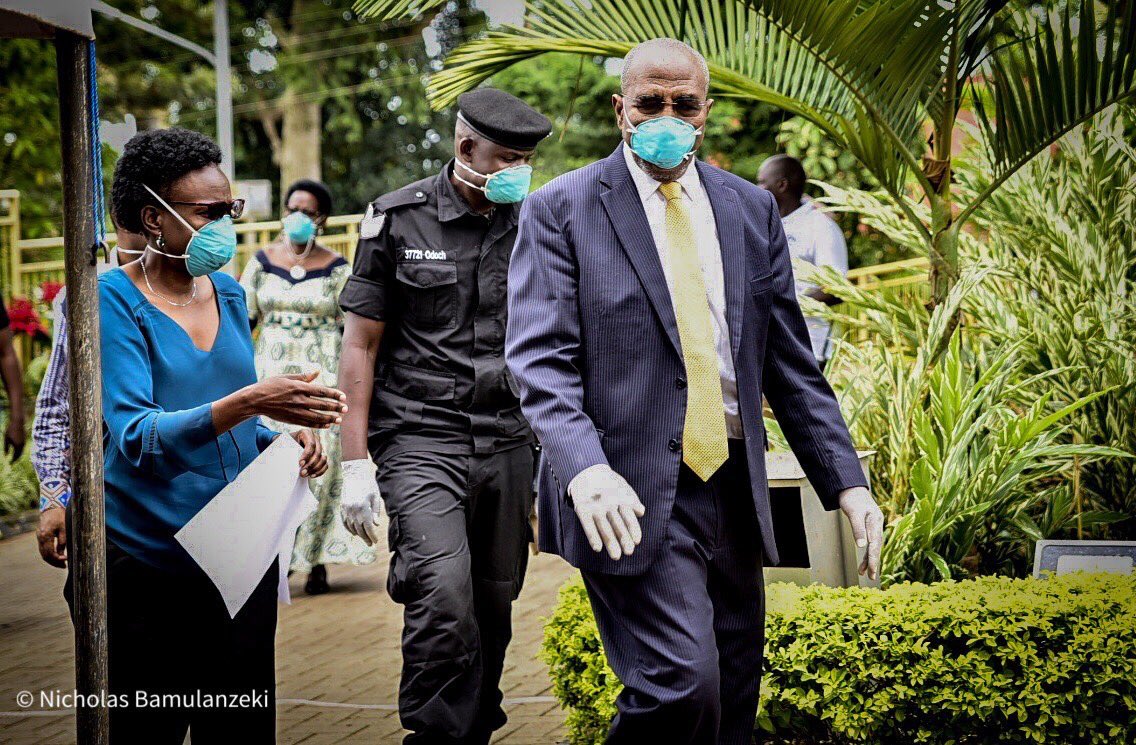
Opinion: Lessons Ugandan policy makers must pick from Covid-19 pandemic response
Baca Juga


By Peter Kabuye
As policymakers around the globe struggle to combat the rapidly escalating Covid-19 pandemic, they find themselves in immense distress. Much has been written about the policies used in countries such as China, South Korea, Singapore, Japan and Taiwan to stifle the pandemic. Unfortunately, throughout much of Europe and the United States, it is already too late to contain this contagion in its infancy. This pandemic has successfully managed to bring all major powers to their knees. Economies are crumbling, health care systems are failing and all social events have either been cancelled or postponed. This time round, whether rich or poor, each country has had a taste of the same infectious virus. This hasn’t spared our motherland, Uganda either.
So far the government has managed this crisis well but much more is needed if this battle is to be won. The systematic and proactive risk management, based on collaboration between government officials and health experts, has proven to be effective in containing the virus. There are numerous lessons that the government must adopt from this crisis which should direct how the health care system must be run.
The government needs to invest more in health than other sectors that take huge portions of the national budget. Most of the funding comes from donors such as World Health Organization, The US President’s Emergency Plan for AIDS Relief, USAID, Global Fund, United Kingdom, European Union and others. Uganda currently allocates just 8.9% of its budget to health. This is far below the 15% commitment President Museveni agreed to under the 2001 Abuja declaration.
Additionally, the government needs to properly account for every penny that is invested. Serious mismanagement and corruption in the system, however, threaten any advances on health of all Ugandans. In March of 2016, Global Fund audit highlighted serious deficiencies in Uganda’s health sector, such as the government’s failure to properly use and account for the money allocated to fight against of the nation’s biggest health threats; HIV/AIDS, tuberculosis and malaria. The shortages of vital life-saving medicines and the lapses in government oversight, put thousands of Ugandan lives at unnecessary risk from preventable and treatable diseases. Authorities must take responsibility, eliminate corruption and adopt financial transparency with health funding.
Covid-19 has shown that the government has to pool resources to fund health research in universities, pharmaceutical and biotechnological companies with an aim of improving the health among citizens. Currently there are 6 public and 6 private medical schools in the country. The government must take the responsibility of providing funds for health research in these universities to help out with ground breaking innovations that might be beneficial. Although there is some funding when it comes to research at Uganda virus institute, some pharmaceuticals and public universities but nothing is given to private institutions.
A comprehensive plan when it comes to health care system has to be put in place. This ranges from setting up a national health insurance for all citizens to setting up modern hospitals with facilities and necessary human capital needed to run them through out the country. One of the critical tools in controlling a major epidemic is having specific, reliable, accurate and fast detection methods to screen infected and non-infected people. This is to ensue that citizens get the best treatment that they need. This also reduces government expenditure on airlifting officials to foreign hospitals in search for better healthcare solutions. This money can be diverted to other needy sectors of the country.
Lastly, the government must learn to keep the health care staff motivated. This comes down to remuneration and provision of basic allowances and facilitations to ensure that they work efficiently and effectively. Meagre salaries in the health care system have facilitated the massive exodus of doctors, nurses and other healthcare professionals to foreign countries in search for greener pastures. This has negatively affected our health care system where by the doctor to patient ratio stands at 1:26,000. In times of the crises like the covid-19 outbreak, the system becomes overwhelmed and most of the times collapses if nothing is done to arrest the situation.
As we head into what is to be a stressful and overwhelming period, uncertainty remains about the long-term outlook. If policymakers want to win the war against this crisis, it is essential to adopt a response that is systemic, prioritizes learning, and is able to quickly scale successful experiments. Yes, this a toll order especially in the midst of such an enormous crisis but given the stakes, it has to be done. The healthy lives that all Ugandans deserve ultimately depend on a far greater commitment by the government to ensure that future becomes a reality.
The writer is a student of Dental Surgery
Uganda Christian University.
The post Opinion: Lessons Ugandan policy makers must pick from Covid-19 pandemic response appeared first on Nile Post.

0 Response to "Opinion: Lessons Ugandan policy makers must pick from Covid-19 pandemic response"
Post a Comment